The past year has been stressful for everyone, to say the least, and according to the American Psychological Association, pandemic-related stress comes with serious health consequences including changes to weight, sleep and alcohol use. First responders already face high exposure to traumatic stress incidents, so we caught up with Dr. Margaret Gavian, licensed psychologist and medical director of MnFIRE, to find out how the added stressors of the pandemic are impacting firefighters:
What new challenges have those in the fire service been experiencing during the pandemic?
Firefighters are in one of the most stressful occupations there is, regardless of if they are paid-on-call, volunteer or career. The pandemic put additional stress on top of an already maxed-out fire service. Leaders had to get up to speed quickly on how best to protect their members from an invisible and unknown danger. Departments with firefighters who caught COVID-19 were further stressed by mandatory overtime or understaffing caused by mandatory quarantine periods and ill firefighters.
This is a profession rooted in teamwork and brother and sisterhood, but this year, firefighters were often isolated from one another when not on calls, reducing comradery and support they naturally would get from one another at the station.
Policies and regulations have also been ever-changing. With the uncertainty of the pandemic and medical understanding, there were often differences in protocols between departments, and even within departments. Differences of opinions and inconsistent messaging from leaders made for an even more challenging environment.
The pandemic has been stressful for everyone, but what stressors do firefighters face specifically?
Firefighters are people just like the rest of us. Their families were put under additional stress with children at home, spouses out of work and financial woes, and then had to continue serving their communities who were suffering from the pandemic as well. Moreover, 90% of Minnesota’s fire service are not career firefighters – meaning that they have regular jobs just like the rest of us, jobs that may be experiencing challenges. So, if you’ve experienced stress from the pandemic, and you’re not a firefighter, assume that a firefighter experienced an extra dose of stress for the last year and a half.
I’ve heard stories of loved ones hugging their grandparents goodbye for what was assumed the last time, before they were transported to the hospital. COVID-19 has put pressure on all of us, and mental health has plummeted as a result. Mental health calls, suicides and overdoses are some of the worst kinds of calls firefighters respond to, and suicides and drug overdoses are on the rise due to the effects of the pandemic. So, if our communities are experiencing more stress, the firefighters responding to these communities are too.
What kinds of trends are you seeing now that we’re turning a corner on the pandemic?
While the pandemic may be winding down and departments may have been vaccinated or have gotten used to this new normal, what’s important to realize is that even if we return to a pre-coronavirus baseline, that’s a pretty abysmal baseline. 50% of all firefighters contemplate suicide, and they also experience depression, anxiety, alcohol abuse and posttraumatic stress at much higher rates than the general population – on a good day.
There was already a silent epidemic within the fire service before COVID-19. While firefighters and their leaders bravely went out on the front lines of the pandemic, facing a global threat we didn’t know much about without hesitation, they were already maxed out in many ways. While there is a light at the end of the pandemic tunnel, our work supporting the resilience and mental health of Minnesota’s firefighters is far from over.
How can those in the fire service and their families seek help during this difficult time?
If you’re not feeling like yourself, or you’re feeling burned out, exhausted, irritable or stressed, the important thing to know is that it’s ok. It’s ok to not feel ok. There are resources out there to support firefighters and their families.
If you are in crisis, call MnFIRE’s 24-hour, confidential peer support hotline at 888-784-6634. If you’re a family member or a firefighter, if you’re retired or working, or if you’re simply concerned about a friend, our team of dedicated trained volunteers will work hard to find the right resources for you. If you’re a chief or part of command staff, contact MnFIRE to talk about strategies and training to support your department’s overall mental health.

